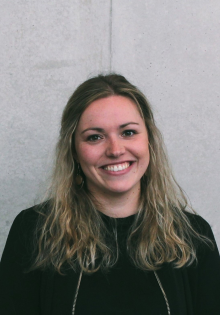From 17 to 19 March 2025, the 23rd University Days of Vocational Education and Training took place at Paderborn University under the motto "Sustainable - Digital - Equitable. Future scenarios for work, education and careers". The "Innovation and Transfer Processes in Vocational Education and Training" (ITiB) research project group at Paderborn University took part with a table session and discussed key questions about the future of vocational education and training with experts from academia and practice.
Social change and comprehensive transformations are presenting the vocational education and training system with new challenges. Funding programmes play a decisive role in not only reacting to these developments, but also actively helping to shape them. They enable educational stakeholders to develop and test innovations in a targeted manner, to network with each other and to further develop existing structures. But how should these programmes be designed in order to sustainably support innovation and transfer processes? What potential and challenges arise?
The table session kicked off with a keynote speech with findings from the InnoVET accompanying research programme ITiB. As part of InnoVET, 17 innovation projects across Germany were funded by the Federal Ministry of Education and Research (BMBF) between 2020 and 2024 with a total of more than 80 million euros under the guiding principle of "Shaping the future - innovations for excellent vocational education and training". The research results show that innovation processes are often complex and areas of tension can arise. A process-accompanying understanding and close co-operation between different educational institutions are seen as particularly promising.
Following on from this, the participants discussed at three themed tables how funding programmes can be designed and linked at the levels of programmes, projects and accompanying research. Six experts contributed their experiences and assessments as panellists. In the concluding plenary session, the results were brought together and impulses for the further development of funding programmes were formulated. One key conclusion was that close cooperation and continuous dialogue between academia, policymakers and practitioners is still essential in order to actively shape the future of vocational education and training. "This was also the idea behind our table session: to discuss findings with relevant stakeholders from the vocational education and training system and to work together on design issues," summarises Prof. Dr. H.-Hugo Kremer from the Paderborn ITiB team.
Further information:
ITiB project: www.uni-paderborn.de/cevet/forschung/aktuelle-projekte/itib
Vocational Education and Training 2025 University Days: www.uni-paderborn.de/htbb2025





